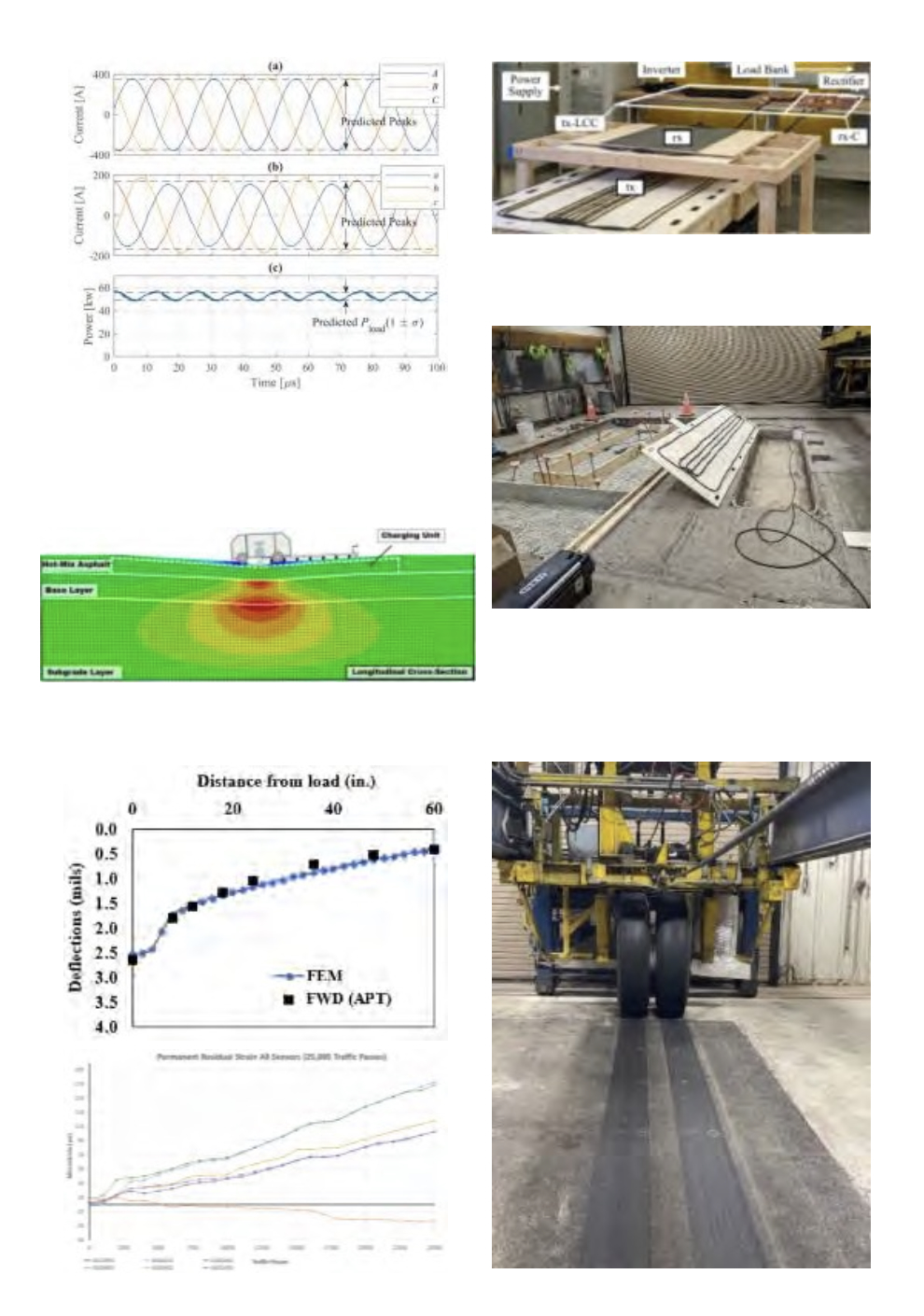ERC Commences Construction of High-Power Electrified Road for Demonstration
Outcome/Accomplishment
The NSF-funded Engineering Research Center (ERC) Advancing Sustainability through Powered Infrastructure for Roadway Electrification (ASPIRE), headquartered at Utah State University, has completed pre-pilot testing of an electrified roadway system and has begun the construction contracting phase for a demonstration of the technology.
Impact/Benefits
Emissions from fossil-fuel powered vehicles negatively affect human health and the environment. ASPIRE’s electrified roadway research contributes to developing new infrastructure that would make it easier for passenger cars and heavy-duty trucks alike to charge on the go, and not have to worry that their vehicle lacks the range to travel between stationary charging stations.
Explanation/Background
The ASPIRE project team is collaborating with infrastructure consulting firm AECOM and the Indiana Department of Transportation (INDOT) on the electrified roadway project. The team has developed three-phase dynamic wireless charging technology for high-powered electrified roads that adheres to safety standards for magnetic fields. Electrified concrete and asphalt pavements are under construction, with the support of INDOT. Simultaneously, a receiver for on-the-go charging is being integrated into a heavy-duty truck that will be used to test and demonstrate the technology.
Location
Logan, Utahwebsite
Start Year
Energy and Sustainability
Energy, Sustainability, and Infrastructure
Lead Institution
Core Partners
Fact Sheet
Outcome/Accomplishment
The NSF-funded Engineering Research Center (ERC) Advancing Sustainability through Powered Infrastructure for Roadway Electrification (ASPIRE), headquartered at Utah State University, has completed pre-pilot testing of an electrified roadway system and has begun the construction contracting phase for a demonstration of the technology.
Location
Logan, Utahwebsite
Start Year
Energy and Sustainability
Energy, Sustainability, and Infrastructure
Lead Institution
Core Partners
Fact Sheet
Impact/benefits
Emissions from fossil-fuel powered vehicles negatively affect human health and the environment. ASPIRE’s electrified roadway research contributes to developing new infrastructure that would make it easier for passenger cars and heavy-duty trucks alike to charge on the go, and not have to worry that their vehicle lacks the range to travel between stationary charging stations.
Explanation/Background
The ASPIRE project team is collaborating with infrastructure consulting firm AECOM and the Indiana Department of Transportation (INDOT) on the electrified roadway project. The team has developed three-phase dynamic wireless charging technology for high-powered electrified roads that adheres to safety standards for magnetic fields. Electrified concrete and asphalt pavements are under construction, with the support of INDOT. Simultaneously, a receiver for on-the-go charging is being integrated into a heavy-duty truck that will be used to test and demonstrate the technology.

